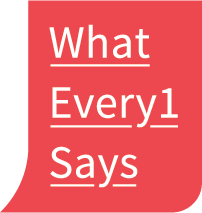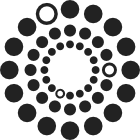A main goal of this series, to be maintained as a regular feature of the larger WE1S Research Blog, will be an in-depth documentation of the teaching undertaken at UCSB in the 2018-19 academic year by me: Abigail Droge, the Curriculum Lab’s director. My three courses, offered through the English Department, will be affiliated with the WE1S project and will each tackle a different angle of advocacy.
In the Fall, “Reading with Scientists: How to Export Literature” will consider how the humanities might enter non-humanities settings (like science classrooms). What possibilities might be opened in an artificial intelligence class by incorporating a 30-minute lesson on Frankenstein, for instance? Key philosophical issues here include whether mobility and portability are necessarily good values in advocacy, what is gained or lost by privileging such values, and how institutionalized boundaries between academic disciplines might work both to hinder and to preserve the work of the humanities.
In the Winter, “Literature in the Real World: How to Solve Problems with Books” will ask students to imagine nineteenth-century literary texts as potential sources of advice for current social issues (ranging from climate change, to gender equality, to universal basic income). At stake in this course will be the stance that advocacy might take towards that ever-important buzzword: “relevance.” To what extent should advocacy efforts emphasize the practicality of the humanities for career paths and problem-solving, and to what extent should they privilege the humanities for their own sake, divorced from bottom-lines and deliverables?
A Spring course, “Reading in Santa Barbara: Past, Present, and Future,” will consider historical and ongoing interactions between reading communities, both inside and outside of the university. Here the reflections prompted by the course might help WE1S to position itself within the larger historical landscape of class politics and academic agendas which has produced a need for humanities advocacy in the first place. A better understanding of the social gaps created by the institutionalization of the humanities can guide us, especially as we seek to direct our advocacy towards the diverse groups who have often been marginalized from those institutions.
Moving across the three quarters of the academic year, then, this blog series will seek to expose my thought process as I plan and teach these courses. I will address everything from text selection to assignment design and give regular updates on my teaching experiences as they unfold. The series is thus meant to be both a way of reflecting on the theoretical and practical challenges of humanities advocacy and a form of advocacy in and of itself, inasmuch as clear communication about the teaching process, in direct relation to ongoing digital research, might increase the available paradigms in which the humanities can live. And new paradigms might lead to new forms of action.
My thinking about the role of the Curriculum Lab in relation to WE1S more broadly has grown up alongside the Summer Research Camp, and the Lab has already been shaped and inspired by the wonderfully generative work of the researchers at both UCSB and CSU Northridge. For the last several weeks, I have been involved primarily with the team tasked with imagining potential “Outputs” for the project (which include the Curriculum Lab, its compiled teaching resources, and this blog series), and the ideas behind the Lab have developed in conjunction with that experience. As the Outputs Team has juggled conceptual and methodological questions in its larger workflow, I have been tracking how those issues might be brought to bear in the Lab, and how the formation of the Lab itself might be used to unpack the practical logistics at stake behind these concerns. A brief summary of three of our key Outputs conversations serves well as a launching point that will continue to guide the Lab through the coming year.
1) How should WE1S balance local and global initiatives? The Outputs Team has been discussing this question in terms of how the project might become involved in the local California community in a way that models the kinds of relationships that we want to build around humanities outreach. From local roots, we could then consider ways to scale up such models to make them portable and wider ranging. It is my hope that the Curriculum Lab, and particularly this blog series, can explicitly address this issue by providing reflections and commentary on local strategies that have worked (or not worked!) in individual classrooms in a way that might eventually exceed those classrooms and prompt further conversation between teachers at a larger scale. In particular, opening a wider communication channel between humanities teachers at the high school and college level is a priority. Achieving such an infrastructure locally may provide models for intellectual exchange that could be adapted elsewhere.
2) What is the relationship between the research and advocacy goals of WE1S? For the Outputs Team, this question has arisen in the context of deciding how the project’s deliverables might be best informed by the topic models that we produce when situating the humanities within public discourse. Should our advocacy efforts simply publicize this research, to communicate what “everyone” says about the humanities? Or should we be correcting gaps that we see in the data (such as overturning negative lines of reasoning about the humanities, or reaching out to groups with particularly low representation among our sources)? And when and how might our ongoing advocacy efforts influence the direction of the research itself? The Curriculum Lab takes this challenge as its foundation and will seek constantly to engage pedagogy and scholarship in the same conversation, in order that they might mutually inform one another. A central premise of the Lab is that self-reflective teaching can guide self-reflective research, and vice-versa. I will make a point of including posts along the way that specifically address the strategies I use in the classroom in light of the project’s ongoing data analysis.
3) What is our relationship to what “everyone” says? The “everyone” represented by our corpus of (primarily) written news sources is necessarily different from the “everyone” that we might hope to reach through advocacy, particularly the wide network of diverse communities that structurally have limited access to the humanities as a discourse at all. For the Outputs Team, a salient question arises when we consider the specifics of how best to reach those diverse audiences. If we tailor resources for specific social groups, do we ourselves risk reproducing negative divisions between communities that might reify, rather than challenge, stereotypes? This question is one that will motivate many of the discussions in my classes this year, as well. For instance, in the Fall I will ask my students to consider whether teaching literature in a special way to scientists (as opposed to how we might teach literature in an English classroom) really breaks down a boundary between disciplines or merely creates a new one. By exploring the possibilities of reaching different audiences through humanities advocacy, we can also be better positioned to understand our own voices amid what “everyone” says.
With these questions, and many others, to spark ongoing thought and conversation for the Curriculum Lab, I look forward to a year of experimental pedagogy!


